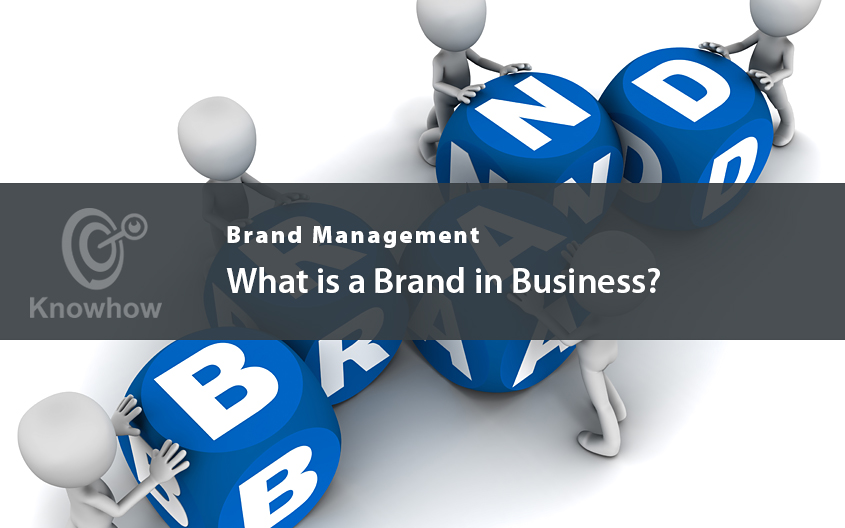
In order to explain what is a brand, we must first define the meaning of “brand” and “product”. Products are actually the things companies make and what they are interested in. In contrast, brands are the point of interest for consumers; they are what the consumers pay their money for.
As such, brands have multiple functional and emotional associations. In terms of customers, brands develop certain promises about the products and raise expectations. They also shape those expectations as well so that the consumers know what they were promised. Because of that, brands usually carry a trademark that helps them stand out among their competition. Moreover, the trademark also serves as a layer of protection.
The meaning of brand
A brand serves as a means to convey specific information to the potential consumer. That information can be related to goods, services, and general ideas of a business or organisation. But what’s most important is that it helps the company stand out.
Furthermore, a brand should convey certain characteristics and make products unique. It also has to serve as quality assurance for the customers. As such, a strong brand is indispensable, as it represents the company and its products. In essence, it helps people become aware of the company’s existence and what it has to offer.
Brands and consumers
When talking about a brand, a consumer views it as a symbol of quality. Furthermore, this symbol is a source of products that carry low risk in terms of finances and quality.
Consumers also believe that a brand signifies a lower search cost for them, as well as a type of pact with the manufacturer. It is essentially a symbolic device that puts all the responsibility onto the manufacturer.
Thus, it stands to reason that brands help consumers easily reach a purchasing decision. Once they realise that a certain brand is giving them all they need, they tend to stay loyal to it. Furthermore, they buy products or services more quickly, thus saving themselves a lot of time. In addition to that, they don’t have to spend money on searching for other brands or products.
But the consumers will only stay loyal to a brand for as long as the brand is meeting their expectations. They will stay committed to it if the brand is delivering on its promises and if it’s providing them with a certain level of satisfaction. However, for that loyalty to endure, brands also have to play their part. They have to show their consumers those product features that will benefit them.
Sellers and brands
Sellers see brands as a way to get an edge over their competition. Furthermore, they believe brands can help them associate their products with beneficial characteristics, as well as help them identify themselves. Brands also serve as legal protection and as signs of quality to satisfied consumers. Lastly, a brand is also a way to acquire financial returns.
Today, there are many brand symbols that help the companies behind them stay on top. For example, most people around the world can instantly recognise the yellow letter M for McDonald’s. Likewise, the Coca-Cola, Sony, Kingfisher, and Mercedes-Benz symbols are familiar to consumers worldwide.
Thus, we can now define what a brand is. A brand is, in fact, a seller’s promise. It is a promise that requires the seller to offer a specific set of benefits, services, and traits to their consumers. However, a brand doesn’t have to be just a sign or a symbol. It can also be a name or a term, or a mix of different elements. But what’s important is that it serves as a way to separate the company from its competition.
What does a brand represent?
When it comes to enterprises, one has to make sure that the brand in question is connecting its four key elements. Those elements are shareholders, management, employees, and customers.
In terms of customers, a brand is simply a set of memories. It has a personality, value, and certain ideas that have stuck in the customer’s mind. Moreover, it is a range of reminders — emotional, rational, and functional — and benefits, which serve as inspiration for consumers. Essentially, these benefits will be the main reason why someone decides to buy something.
Thus, it’s clear that brands are simply symbols and images that serve as reminders of brand benefits or the brand itself. For example, the Nokia sound, which immediately brings up memories of Nokia phones whenever it’s heard.
Related content:
Brand Management Knowhow – learn more about branding with our collection of educational articles.
From corporate branded tote bags, custom pens, promotional mugs, water bottles, eco-friendly giveaways, clothing and notebooks, here at GoPromotional we believe that you are sure to find the perfect UK range of promotional giveaways to help build your brand.
If however, you require further information or have any specific questions, don’t hesitate to give a member of our experienced team a call on 0800 0148 970 or simply email us today.






